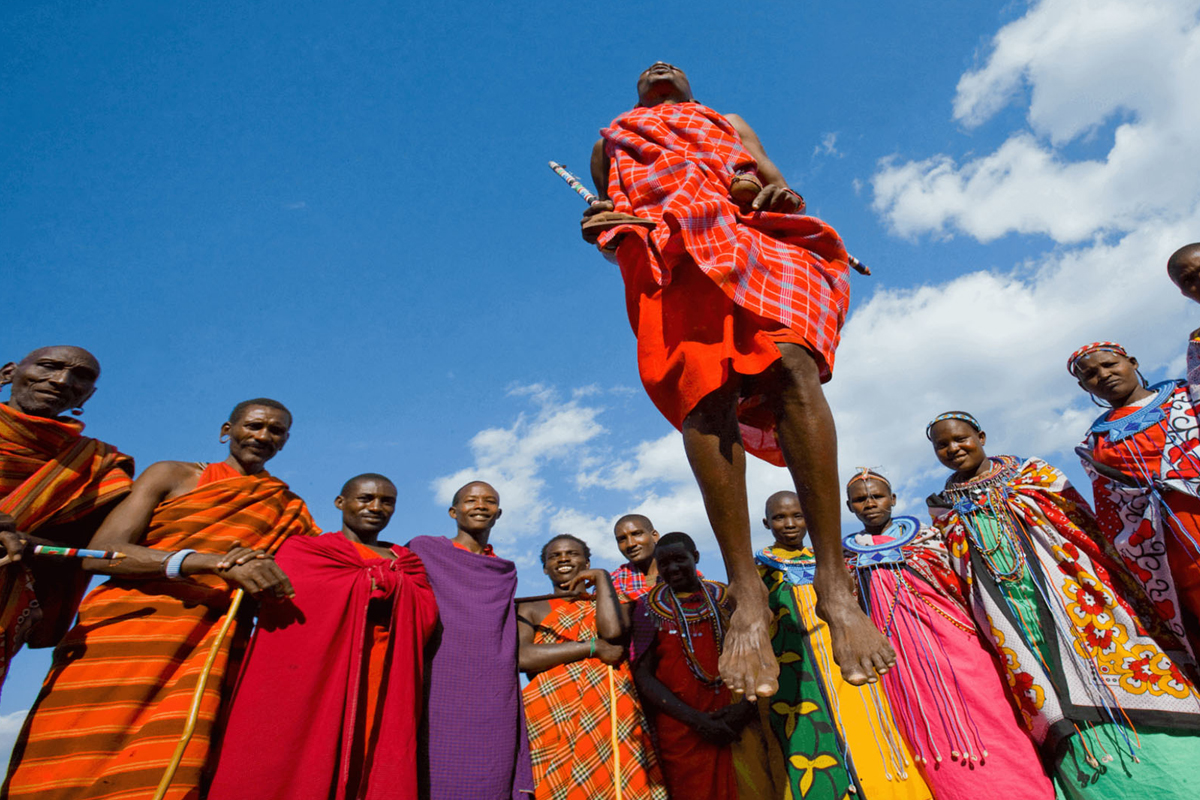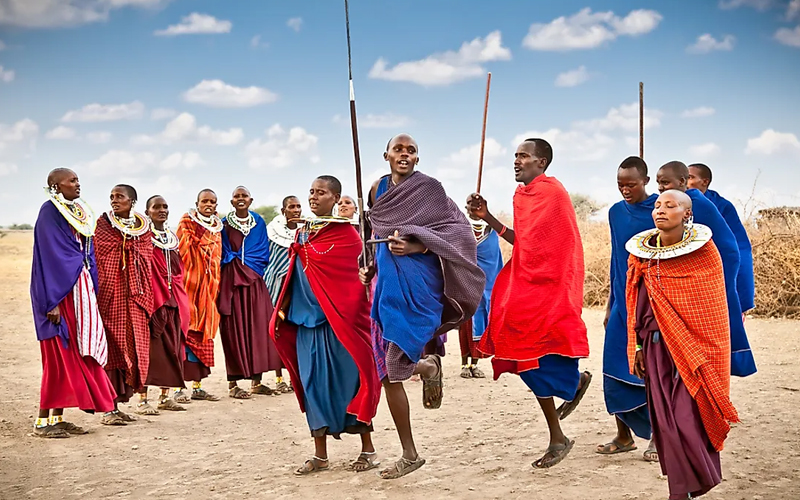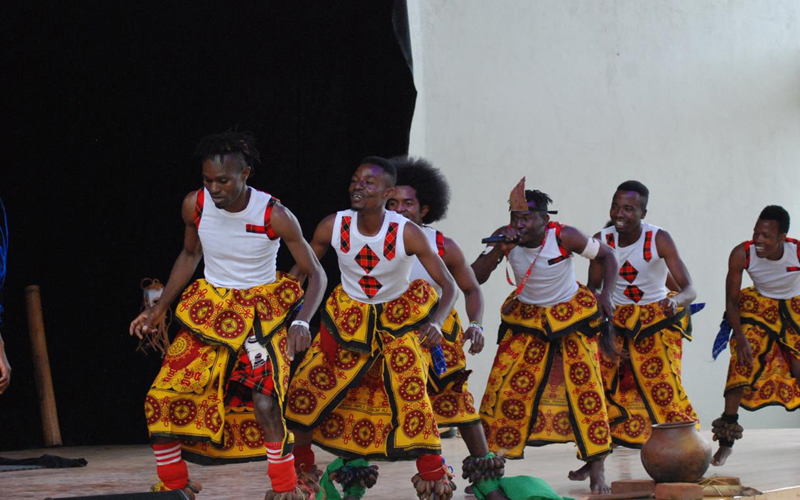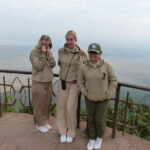Tanzania is a land rich in cultural diversity, home to over 120 ethnic groups, each with its unique traditions and ceremonies. These traditional ceremonies are more than just rituals; they are vibrant expressions of cultural identity, history, and social cohesion. In this article, we delve into the fascinating world of Tanzanian traditional ceremonies, exploring their significance, variety, and the cultural insights they offer to visitors.
The Importance of Traditional Ceremonies in Tanzania
Traditional ceremonies in Tanzania play a crucial role in maintaining the cultural heritage and unity of various ethnic groups. These events are often tied to significant life events such as births, marriages, and deaths, as well as agricultural cycles and spiritual beliefs. They provide a sense of identity and continuity, linking the present generation with their ancestors and ensuring the preservation of cultural norms and values.
Birth Ceremonies: Welcoming New Life
- Birth Rituals and Customs: In many Tanzanian cultures, the birth of a child is celebrated with elaborate ceremonies. Among the Sukuma people, for instance, a naming ceremony called “Kugema” is held shortly after the birth. Elders play a central role in bestowing names, which often reflect the circumstances of the child’s birth or the aspirations of the family.
- Symbolism and Practices: These ceremonies are rich in symbolism, with rituals designed to protect the newborn and ensure a prosperous future. Common practices include the shaving of the baby’s head to symbolize a fresh start and the presentation of gifts such as livestock, which are significant in agrarian societies.
Initiation Ceremonies: Coming of Age
- Marking the Transition to Adulthood: Initiation ceremonies are pivotal in Tanzanian cultures, marking the transition from childhood to adulthood. Among the Maasai, boys undergo a series of rites culminating in circumcision ceremonies known as “Emuratare.” This is not only a physical transformation but also a spiritual and social initiation into warriorhood.
- Gender-Specific Rituals: Girls also have initiation ceremonies, such as the “Unyago” among the Makonde, which involves seclusion and education on womanhood, marriage, and family life. These rituals prepare young people for their roles and responsibilities in the community, emphasizing values such as bravery, loyalty, and respect.
Marriage Ceremonies: Celebrating Union
- Pre-Wedding Traditions: Marriage ceremonies in Tanzania are elaborate and vary widely among different ethnic groups. The Hehe people, for example, have a series of pre-wedding rituals that include bride price negotiations, engagement ceremonies, and the blessing of the couple by elders.
- Wedding Day Celebrations: The wedding day itself is marked by joyous celebrations, including traditional music and dance, feasting, and the exchange of gifts. These ceremonies often extend over several days, reflecting the importance of marriage as a union not just between individuals but between families and communities.
Harvest Festivals: Honoring the Earth
- Significance of Agriculture: Agricultural cycles are central to the lives of many Tanzanian communities, and harvest festivals are a way to honor the earth and give thanks for its bounty. The Wazaramo people celebrate the “Ngalawa” festival, which includes boat races, dances, and offerings to the spirits of the ancestors.
- Rituals and Celebrations: These festivals are characterized by communal feasts, the performance of traditional songs and dances, and rituals intended to ensure the continued fertility of the land. They reinforce communal bonds and the collective gratitude towards nature’s provisions.
Death Ceremonies: Honoring the Departed
- Rituals of Passage: Death is seen as a transition rather than an end, and Tanzanian death ceremonies are designed to honor the deceased and facilitate their journey to the afterlife. Among the Chagga people, death rituals include the washing and dressing of the body, public mourning, and elaborate burial ceremonies.
- Cultural Beliefs and Practices: These ceremonies often involve offerings to ancestors and the performance of specific rituals to prevent the spirit from causing harm to the living. The community comes together to support the bereaved family, ensuring that the social fabric remains intact.
Spiritual Ceremonies: Connecting with the Divine
- Role of Spiritual Leaders: Spirituality is deeply ingrained in Tanzanian cultures, and spiritual ceremonies are essential for maintaining harmony between the physical and spiritual worlds. Shamans and spiritual leaders play a crucial role in conducting these rituals, which can include healing ceremonies, rainmaking rituals, and rites of protection.
- Examples of Spiritual Rituals: The Zaramo people, for instance, have “Mwaka Kogwa,” a New Year festival that involves rituals to cleanse the community and ensure prosperity. These ceremonies often involve the use of sacred objects, chants, and dances that invoke the presence of spiritual entities.
Music and Dance: The Heartbeat of Ceremonies
- Traditional Instruments and Styles: Music and dance are integral to all Tanzanian ceremonies, providing a means of expression and communication. Traditional instruments such as the Ngoma drums, marimba, and flutes are used to create rhythms that accompany dances like the “Ngoma” of the Zaramo or the “Lelemama” of the Maasai.
- Role in Community and Ceremonies: These performances are not merely entertainment but are deeply symbolic, often reenacting historical events, myths, and social values. They foster a sense of unity and collective identity, enabling participants to connect with their heritage.
Traditional Attire: A Display of Cultural Identity
- Significance of Clothing: Traditional attire is worn during ceremonies, showcasing the rich cultural diversity of Tanzania. Each ethnic group has distinct clothing styles, such as the Maasai shuka, the Hehe kitenge, and the Chagga kangas, each adorned with unique patterns and colors.
- Adornment and Symbolism: These garments are often accompanied by elaborate beadwork, jewelry, and headdresses that signify social status, age, and marital status. Wearing traditional attire is a way to honor one’s heritage and express cultural pride.
Role of Elders in Ceremonial Life
- Guidance and Wisdom: Elders hold a revered place in Tanzanian societies, serving as custodians of cultural knowledge and traditions. Their presence is essential in ceremonies, where they provide guidance, perform blessings, and pass on oral histories.
- Intergenerational Transmission: Through storytelling, proverbs, and direct participation, elders ensure that cultural values and practices are transmitted to younger generations. Their involvement reinforces respect for tradition and the continuity of cultural heritage.
Inter-Tribal Ceremonies: Fostering Unity
- Collaborative Celebrations: Inter-tribal ceremonies are occasions for different ethnic groups to come together, fostering unity and mutual respect. These events often involve shared rituals, collaborative performances, and communal feasts.
- Cultural Exchange and Learning: Such gatherings provide opportunities for cultural exchange and learning, enhancing understanding and cooperation among diverse communities. They highlight the shared values and collective identity that transcend individual ethnicities.
Tanzanian traditional ceremonies are a window into the rich cultural tapestry of the nation. They offer profound insights into the values, beliefs, and social structures of various ethnic groups. By participating in or witnessing these ceremonies, visitors can gain a deeper appreciation of Tanzania’s cultural diversity and the enduring significance of its traditions. Whether it’s celebrating a birth, marking a rite of passage, or honoring the ancestors, these ceremonies embody the spirit and resilience of Tanzanian culture.
FAQs
1. How can I participate in a traditional ceremony in Tanzania?
You can participate by joining cultural tours offered by reputable tour operators. These tours often include visits to villages and participation in local ceremonies.
2. Are there any customs I should be aware of when attending a ceremony?
Yes, it’s important to dress modestly, be respectful, and follow the guidance of your hosts. Asking for permission before taking photos is also recommended.
3. What is the significance of music and dance in Tanzanian ceremonies?
Music and dance are vital elements that convey cultural stories, values, and emotions. They foster community spirit and continuity of traditions.
4. Can I buy traditional attire or crafts from the communities?
Yes, purchasing traditional attire and crafts supports local artisans and helps preserve cultural heritage. It’s a great way to take a piece of Tanzanian culture home with you.
5. How do traditional ceremonies impact the younger generation?
Traditional ceremonies play a crucial role in educating the younger generation about their cultural heritage, instilling pride, and ensuring the continuity of traditions.
For an unforgettable Tanzanian safari experience, discover the following highlights on our site:
- Lake Manyara National Park
- Ngorongoro Crater
- Serengeti National Park
- Serengeti Great Migration
- Tarangire National Park
- Tanzania Honeymoon Safari
- Tanzania Luxury Holiday
Visit our page for detailed insights and tips to plan your perfect safari adventure in Tanzania.














